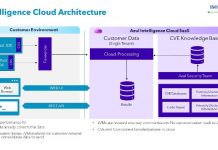

platform.
FreshBooks CEO and Co-founder, Mike McDerment commented: “At FreshBooks, we understand that small business owners went into business to serve their clients and do the work they love—not to learn accounting. Our team is proud to have added greater functionality to FreshBooks that will help our customers accomplish even more, on their terms, without adding any unnecessary complexity.”
This is not just about allowing FreshBooks to attract Accounting firms and their clients. It should also slow the drain of growing customers seeking mid-market solutions. Adrian Joaquin, Founding Partner and CEO of Workhaus, a collection of coworking spaces across Canada, commented: “FreshBooks has been a gamechanger for us as we’ve scaled our business. It’s simple to use for everyone we work with, and it’s ideal for a high-billing service business like ours, since we have to send hundreds of invoices every month. More advanced accounting in FreshBooks means we’ll be able to keep growing Workhaus without worrying about having to migrate to more complicated software.”
Other improvements for 2019
These are not the only updates in 2019. FreshBooks has also improved Time Tracking with a timer feature to track the actual time spent on tasks. There is also a new sub tab for day and week, giving users a better overview of how they are spending their time.
Other improvements include improved search functionality, and a quick edit feature when editing expenses in bulk. This includes the ability to change the clients on expenses. It has also added Estonian language support for invoices, estimates and proposals.
Enterprise Times: What does this mean
Freshbooks relaunched its platform in 2016. The company has since added functionality to allow it to compete with companies like Sage and QuickBooks online. It has also added numerous integrations such as G Suite by Google Cloud, Slack, Salesforce, MailChimp, ZenDesk, Trello, Basecamp and Asana.
This latest update should allow it to better appeal to Accountants rather than just direct to small businesses. It is a key step as it looks to compete in an increasingly competitive market. Is this a risky strategy? The added complexity may mean that some small businesses want a simpler solution. Competitors such as Wave and ZipBooks, may look to take advantage. Companies such as Plooto which only offer payables and receivable will bee attractive for certain industries.
While FreshBooks has announced bank reconciliation it has not announced whether that includes bank feeds. FreshBooks does include an automated “Bank Import”, but this probably includes some manual intervention to download the bank data. It is an area that it will need to work with each bank on.

























